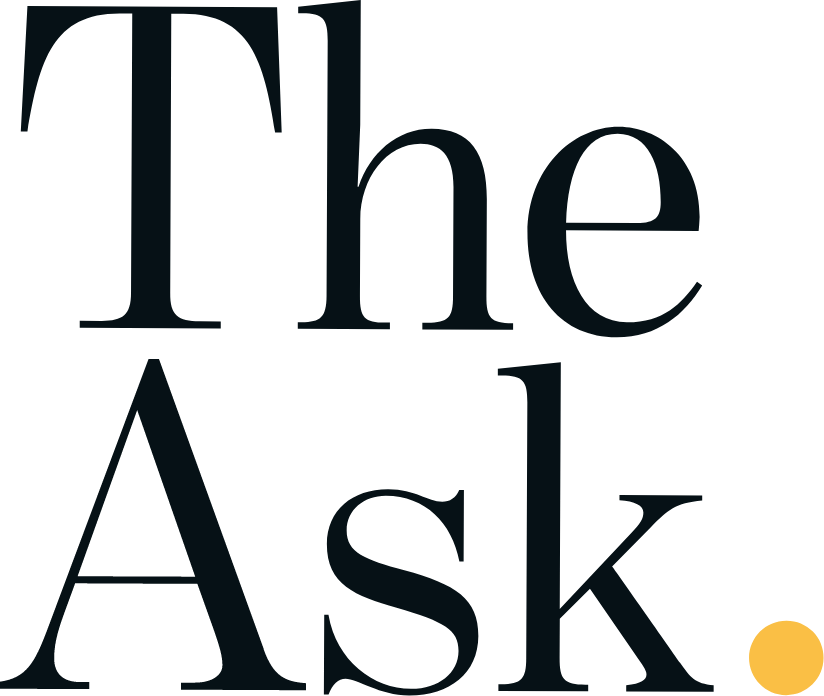How to figure out what to do next in your career
Don't stay stuck in indecision for another year. This January, use our ten-step guide to take action towards career clarity.
We’ve almost made it through January! I hope the start of 2023 has been good to you.
For many, this time of year brings real momentum towards the goals you’ve set out to achieve. In client sessions, I feel the energy of the new year painting a picture of possibility and expectation for the year ahead. There are dream job interviews happening, and resignations being handed in. There are new business plans, pivots and projects.
Some of you won’t be able to relate.
You cannot make real plans for the year because you’re missing an essential ingredient of this process: knowing what it is that you want to do in the first place.
When you can’t decide what’s next it impacts your ability to make clear choices about your career growth, your location, finances, and other lifestyle components. Everything feels up for debate. Rather than gunning for that next promotion or £10k per month, you’re gunning for clarity.
Perhaps you are the kind of person who will run full-steam ahead towards the targets you set for yourself, but when those aren’t clear, expend too much energy tripping over your own mental loops, questioning it all. It’s tiring!
If this resonates keep reading to explore why we get so stumped figuring out ‘what’s next’ and then identify the tools to find solace in this process. There’s a 10-step guide I’ve created for you can keep handy, too.
Why don’t you know what you want to do already?!
It’s hard knowing what you want to do with your career when you are smart, talented and have so many options available.
Options + Talent = Overwhelm.
(You could apply this same logic to dating apps too, but let’s leave that here for now).
Talent — meaning your career potential — opens doors. For those who have a singular set of skills perhaps one or two doors open, but for those with many, wide-ranging skills, numerous doors remain open to you.
You are the only one who can choose between them, and as we know having too many options leads to an onset of analysis paralysis and indecision, and ultimately, inaction. Inaction due to the fear you feel, e.g. the fear of missing out, of getting it wrong, of failing, of losing money, of letting down your parents. Such fears are wide-ranging, and, left to their own devices, will run the show.
Added to this, in the increasingly entrepreneurial world in which we live the choice becomes even harder. That’s because pursuing your own career path inherently offers a lack of rules, guardrails or advice by its very definition.
You can build your own, taking inspiration from others, but the careers of those you admire the most are rarely handing over their time and secrets. Or perhaps you have idealised these careers based on what you see online and in reality, living the life of a coach/influencer/CEO/politician/creator wouldn’t be right for you.
Add to this the fast-paced social, technological and environmental changes and it is no wonder that we falter when tasked with knowing exactly where we want to land.
It’s a big decision.
For big decisions, we need better context, better guidance, and better decision-making.
Call it The Great Resignation, The Great Rethink, or the latest one, The Great Contemplation… we’re questioning more than ever before what we want our working lives to look like.
I’ve personally felt the pain of not knowing in an acute way, once in 2015 and again in 2019. I was miserable, no fun to be around, and it took up a lot of my mental energy. Over time, I built up a toolkit to solve my own problem of not knowing, a toolkit that I use with clients, now, in coaching sessions and in the content I create for this business.
Need more support taking the next step?
Subscribe to The Ask’s newsletter and get support, advice and strategies dropped straight into your inbox.
A lot of career advice sucks.
It’s hard to figure out where The Ask sits in terms of a ‘competitive landscape’ but if there was no limit to what I could do, I’d build something that can replace the career advice centres in the education system which, let’s face it, suck.
The rate of change in the world is faster than any of us can keep up with, let alone underfunded departments sitting outside of the commercial world. There is a space for alternatives. But seriously, please, because if being a TikTok star really is seen as the epitome of success for our next generation of workers then we all have a problem on our hands.
For now, with humble resources, I sit firmly in the coaching industry. And, as a collective, I believe we coaches are in a strong position to provide a solution to the problem that people face in not knowing what they want to do next.
That is, as long as they can fulfil the following three criteria:
✔️ They know the client well-enough to provide tailored advice
✔️ They know the market/industry well enough to guide the client
✔️ They know the transformation process (active listening, clean questions, reframing removing limiting beliefs and the myriad of coach training fundamentals).
Whilst Therapists can do 1 and 3 they can rarely provide 2. Your friend/mum/partner perhaps maybe has two of them, but they also bring their own pre-conceived expectations of you and personal agendas.
This is why I’m so passionate about creating coaching programmes and tools for highly personalised decision-making. Career advice as unique as you are, so to speak. This can truly generate pathways and potential options fit for the careers of the future, not the past.
Of course, by virtue of the fact I am writing to many of you at once this newsletter medium is not personalised. But here I am about to share the steps that I would take you through, were we working together.
Your guide to deciding what’s next
This is the strategy that can help you to make this choice, all in one download, and the exercises and approaches listed have been used with hundreds of clients now in various forms.
Your 10-step guide to deciding what’s next.
Click Here to Download The Guide
Take the time to review the sections and go through them in order, many people try to launch to the final stages without carefully working through the first steps and wonder why they are no clearer on the outcome. So allocate the time accordingly and stick to it like a rigid schedule, the results will follow.
It should be noted that whilst writing this post, out of interest, I asked Chat GPT what steps help someone decide on a new career path.
The advice listed was largely the same as within this guide.
Rather than spit out my drink in disgust and step aside to let the robots take over my profession, I was not at all surprised.
I’m no stranger to what the internet has to say on this topic. Whether in the Reddit forums, Forbes columns or Psychology Today. The advice remains largely the same and has been this way since I looked to it urgently for my own career pivot in 2015.
But, if this information is so widely available, why are so many people still stuck?
It’s because the information in itself is not game-changing but the process of going through these steps is.
And not nearly enough people follow these steps closely enough to see the true benefit.
You see, during career leaps and pivots you end up taking lots of tiny steps, one after the other. Each of which requires work, courage, and consistency. Sometimes you have to humble yourself, or get vulnerable in the process. From there you’ll gain clarity and a picture of what you are capable of begins to emerge.
This is where coaching comes in.
Coaching provides an insurance policy for getting through the steps as fast as possible and taking them seriously. Plus it brings an objective perspective, inspiration and guidance along the way so you don’t stay stuck on the same thought loop, or blocked by your own limitations or excuses.
You never have to apologise for talking about yourself too much, it’s literally their job to listen and help you sort your ideas out (unlike your friend whose patience has limits). Ideally, this same coach has built up relevant resources to bring to these conversations and guide you, too.
Many people decide to pivot into something new at the same time as working in a full-time job — it can feel like having two jobs at once during the process. Or, as many of my clients are going through, they redesign their self-employed career to focus on different types of client work, or scaleable services, or a new type of offer altogether. All whilst managing a full schedule.
As you can see project-managing and planning this process becomes all the more important when time is so precious.
The final piece of this puzzle is perseverance.
Through the inevitable rejections, pitfalls and shiny-object syndrome that can occur. The final stages of the plan involve actually putting yourself out there and talking to real humans (gasp!). No doubt about it, there will be wobbles and insecurities. A coach can lend a friendly ear, or push you through the discomfort.
Is it worth it?
You might be reading this and feeling a little bit tired. It’s a lot of work!?
Yes, it really is. My first career pivot took almost a year. Starting a business is an ongoing journey where every level is another devil. But was it worth it, for me personally?
Absolutely. I don’t have a perfect life, loads of free time, or a big bag of money to point to as evidence. But, I do wake up each day excited to do what I’m doing, by the team and the clients I work with as well as the topics I end up writing, coaching and thinking about.
I know on both a day-to-day basis and on a macro-level what is worth my time energy and focus, and what is not.
Career clarity brings benefits to every area of life. Clients’, and my own experience shows me, that being in a good place with work improves levels of confidence, peace, and contentment. You stop having so much FOMO of others’ lives, have better boundaries and you are more intentional because you are clear about what really matters.
The impact career clarity can have really is worth the effort it might take to get there. So if you’re feeling a bit lost about what’s around the corner, will you make a promise to fix this soon? Whether I am your coach, you use this guide, or not, the method is less important than the outcome.
Let me know how you get on and as always if you have any questions on the steps don’t hesitate to get in touch via email or book a consultation for coaching (new spaces opening mid-Feb).
Thank you as always for reading.



